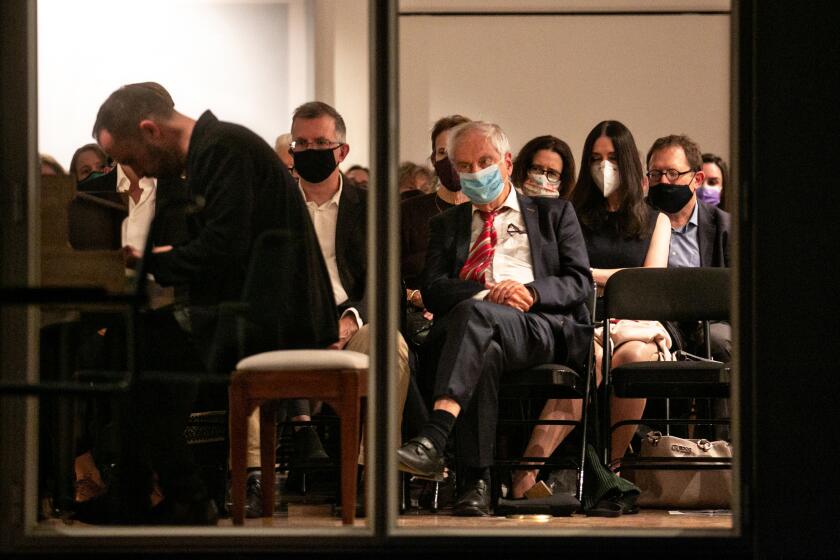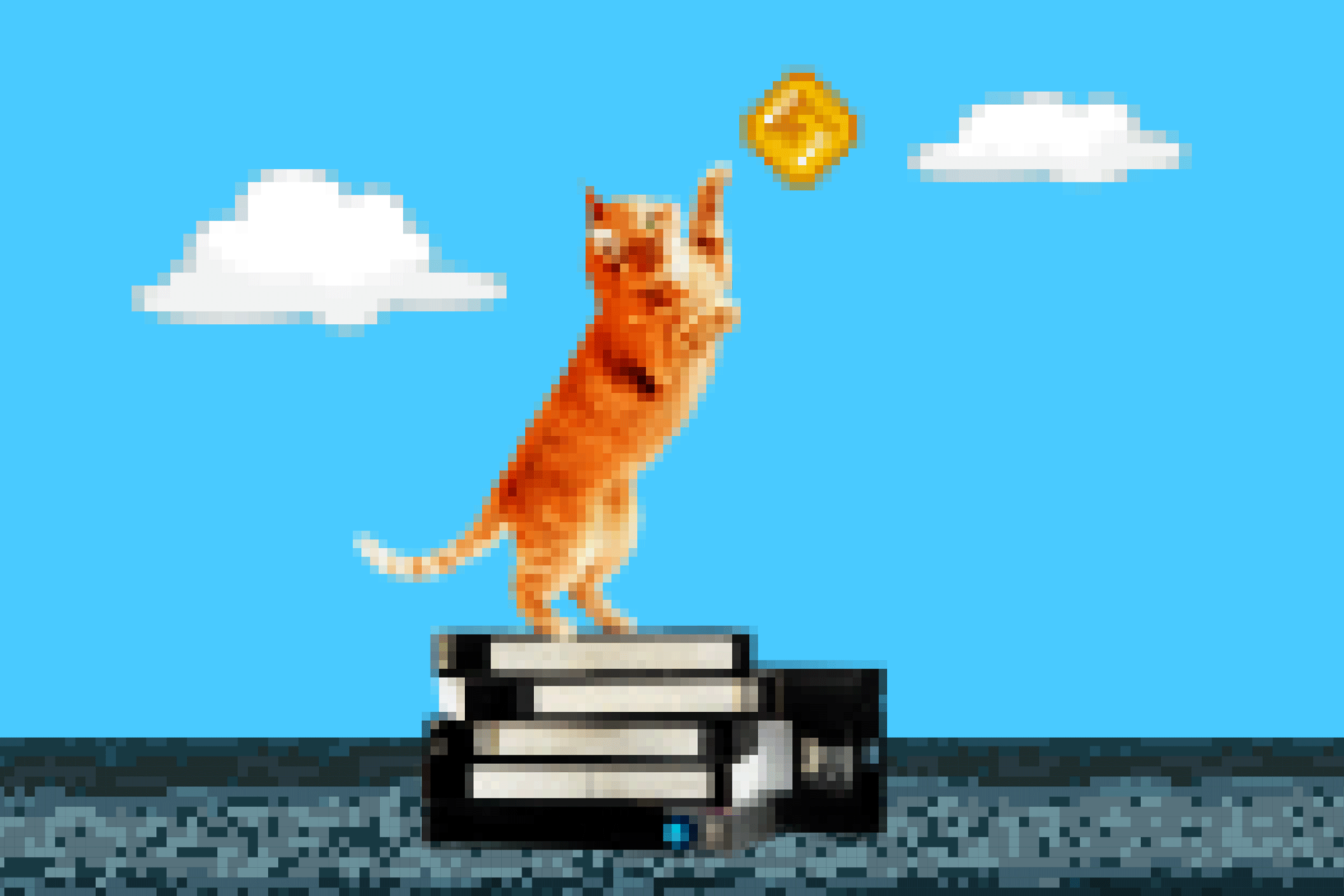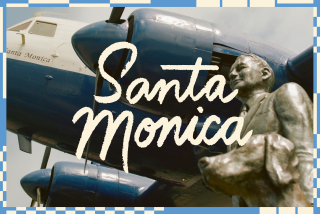Place History: Refugee intellectuals at the Brentwood Country Mart
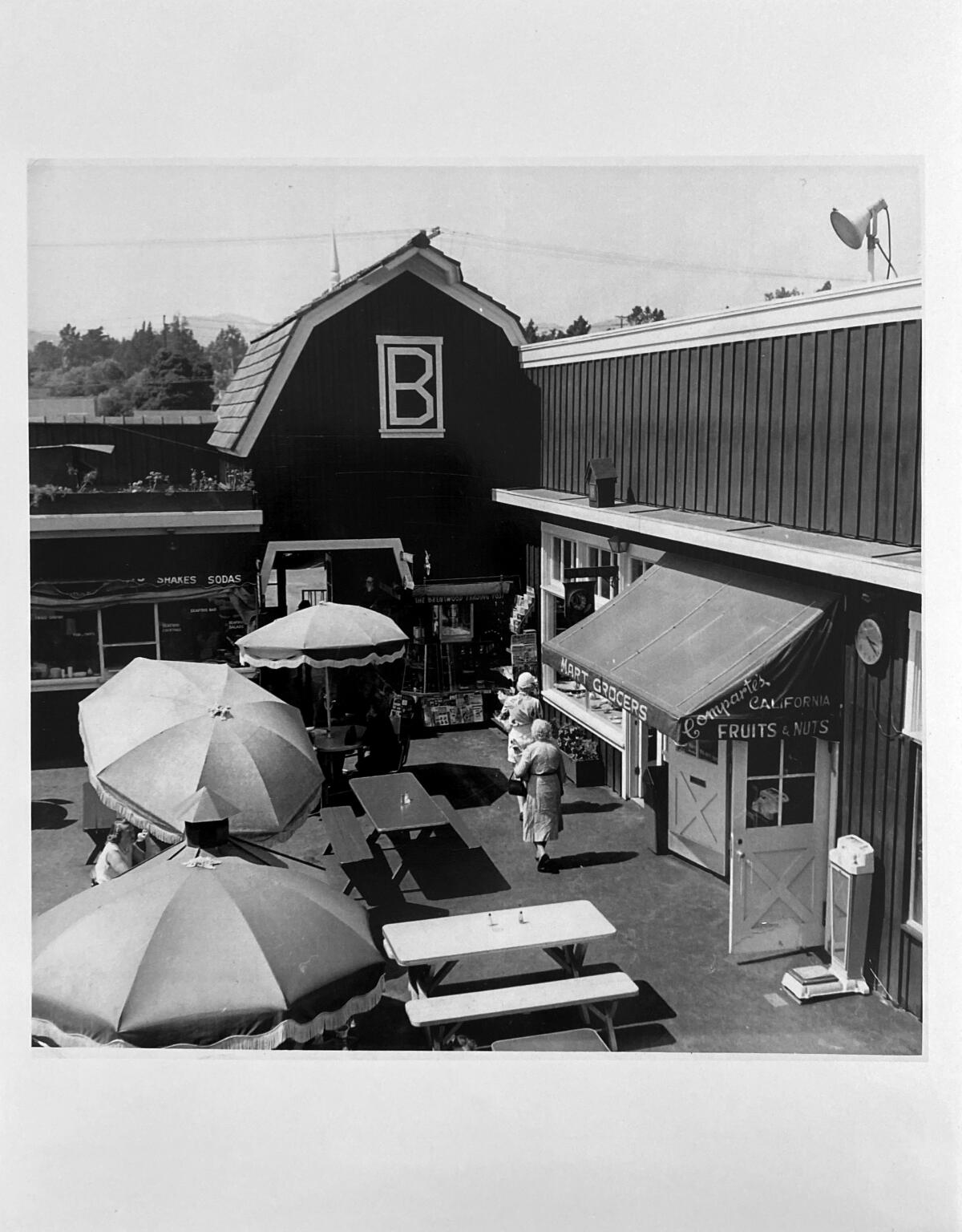
This story is part of Lit City, our comprehensive guide to the literary geography of Los Angeles.
When the Brentwood Country Mart opened in November 1948, on the corner of San Vicente Boulevard and 26th Street, it pleasantly provided amenities for Santa Monica and Brentwood and the nearby Pacific Palisades — low-key and relatively affordable neighborhoods at the time. As Brentwood got tonier, movie stars joined the ranks of the residents who regularly picked up groceries, had their shoes shined and mailed letters in the barn-shaped one-stop shopping complex.
Some of those neighbors also happened to be luminaries of the émigré community. Did they shop at the Mart? Yes. Did they hang out at the Mart? There is anecdotal evidence that makes that seem likely.
Look beyond the cultural institutions of L.A. to find the places where writing movements were born. Five unexpected place histories of a literary city.
You will be hard-put to find the Mart mentioned in the literature about what Thomas Mann dubbed “German California.” But he lived a very short drive or a comfortable half-hour walk away in the Palisades. The Mart opened the month his novel “Doctor Faustus” became a Book of the Month Club selection, and don’t you think he might have needed supplies for a celebratory party?
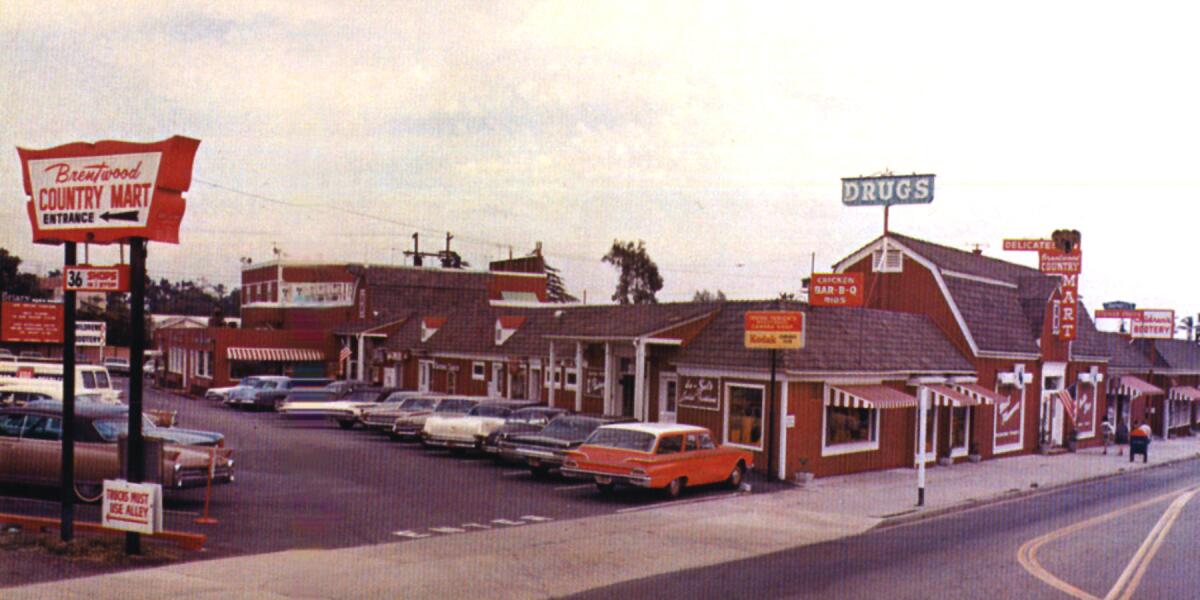
One possibly apocryphal — or just as possibly authentic — anecdote recounts a frosty encounter between Mann and Arnold Schoenberg, the composer who inspired the novel and lived not far away on North Rockingham, as they were picking out grapefruits in the Mart’s neighborhood market. Schoenberg was enraged with how Mann had portrayed him.
Philosopher Theodor Adorno, to whom Mann turned for musical guidance while writing his anti-Schoenbergian “Faustus,” had an apartment just up the street on South Kenter. Esa-Pekka Salonen calls the patio behind that market (now the high-end Farmshop) the Schoenberg/Adorno courtyard, imagining the two there in heated discussion hashing out their recondite musical philosophies.
Igor Levit inaugurates the historic return, after 70 years, of Thomas Mann’s piano to the Brentwood home that hosted film and literary luminaries.
Indeed, during World War II and in its aftermath, the area and its surroundings may well have housed the highest concentration of émigré intellectuals and artists — mostly exiles from Nazi Germany — in the world. Within a few miles were screenwriters Salka Viertel (whose Santa Monica house was a legendary émigré magnet) and Vicki Baum (who wrote “Grand Hotel”). Christopher Isherwood was in the neighborhood, along with theater director Max Reinhardt and Russian cellist Gregor Piatigorsky.
The moment, though, was brief, and by the time the Mart was built (by an architect who worked on The Times’ building downtown), it was already waning. Poet and playwright Bertolt Brecht, composer Hanns Eisler and philosopher Max Horkheimer had recently left the area.
Nevertheless, the intellectual zeitgeist remained. For decades, the area retained its literary ambiance, home to such great L.A. bookstores as Papa Bach, Midnight Special and Dutton’s, along with a wealth of used bookstores.
I remember the Mart from my first visit in 1965 as a funky, haunted old barn. Lately, those ghosts may seem to have been getting less interested in the Mart, with Brentwood no longer even vaguely affordable to artists. But with Diesel, the old barn houses the last real bookstore in Santa Monica and Brentwood, small as it is. With a little imagination, the zeitgeist is not entirely out of reach.
The ghosts, of course, must now come to us in our imaginations, but isn’t that what novels and poems and plays and films and operas are for? The Schoenberg/Adorno courtyard remains an inviting spot to grab a coffee and an ice cream, to read or write (or host readings, as Diesel does). And to summon ghosts who still have plenty to say to us — who warned us to watch our step, or the world might turn out pretty much the way it has.
More to Read
Sign up for our Book Club newsletter
Get the latest news, events and more from the Los Angeles Times Book Club, and help us get L.A. reading and talking.
You may occasionally receive promotional content from the Los Angeles Times.

